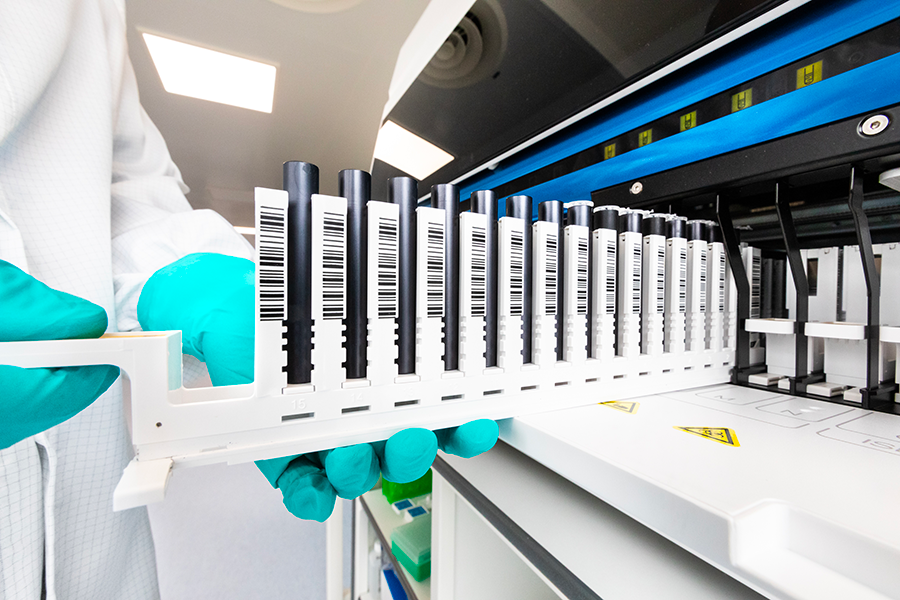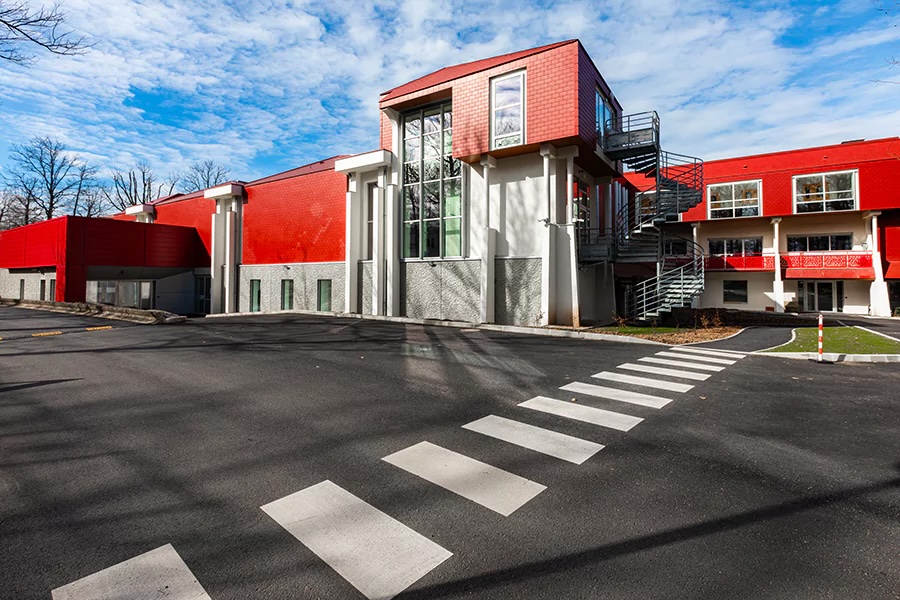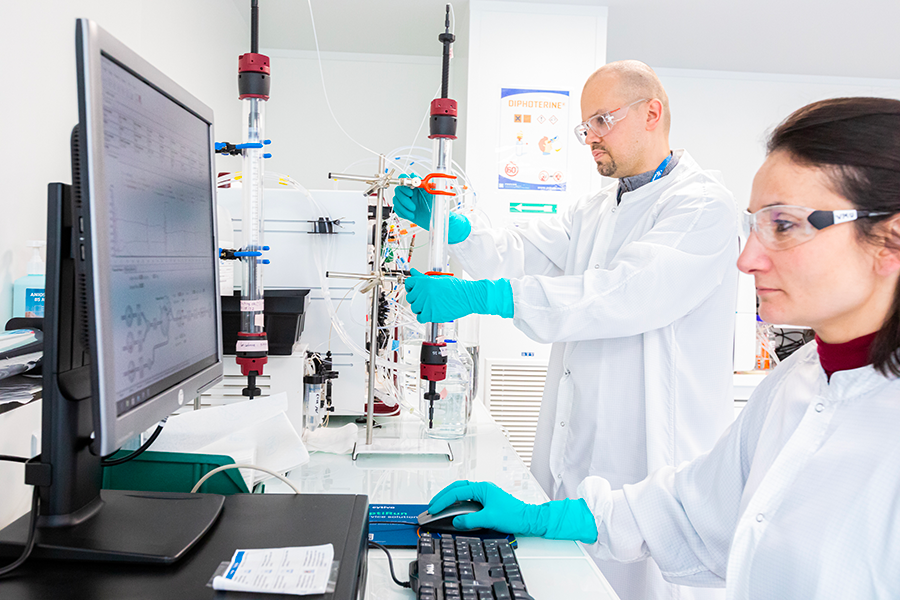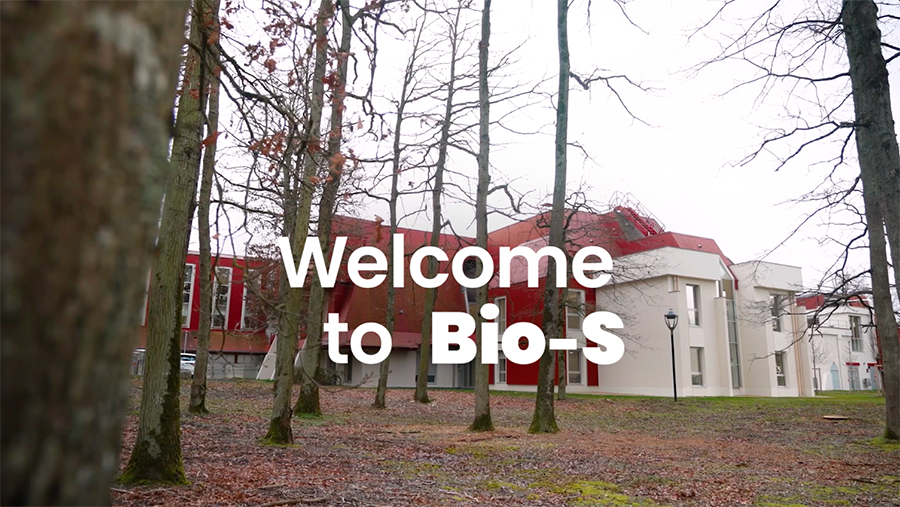Following several years of active engagement in biodrug discovery and development, today, we are upping our game by building Bio-S. Our first production unit for active ingredients derived from living cells is located in Gidy just two hours south of Paris, near Orleans. This project has a twofold objective. It will enable us to produce our own pipeline of biological medical product candidates, particularly in oncology, while also contributing to the sovereignty of the French health care industry in this field.
Biodrugs, a source of hope
The fruit of progress in research and advances in biotechnology, biodrugs are a new generation of medicines in which the active ingredients are derived from living systems of biological origin, such as proteins, antibodies, cells, vectors, etc. Biological medicines of this sort enable us to offer alternatives to chemically produced molecules to treat a wide variety of pathologies in the fields of oncology, immunology, virology, as well as certain rare diseases.
A key contributor to progress in current and future health care challenges, bioproduction sites are being set up worldwide to chart unexplored paths to discovery that could bring renewed hope to countless patients.
At Servier, we are convinced that medicines produced by biotechnologies will pave the way to major advances in the treatment of numerous diseases – ones for which no solutions are currently available to patients.
At the forefront of those efforts, is Bio-S, our future production unit in the Loiret region of France. It will produce active ingredients derived from living cells (or their extracts).
From R&D to the production of biological medicines
For some years now, Servier has been using biologically-derived products in our cancer treatments. Following our acquisition in 2020 of Symphogen — our Denmark-based development platform for therapeutic antibodies — biologically-derived products currently make up nearly 50% of our pipeline of R&D projects.
Alongside Symphogen, our Bio-S unit in Gidy, an expansive 10,000 square-meter-facility, will enable us to accelerate the pace of research to serve patients by producing new medicines derived through biotechnologies.
“With Bio-S, our goal is to have our own production unit for active ingredients derived from living cells for our clinical trials, on a scale that is in line with our production capacities. This will enable us to develop a unique pipeline of new candidate biological medical products and accelerate the development of innovative therapies, particularly in the field of oncology, and to rapidly make them available to patients and health care professionals.”
Olivier Laureau, President of Servier



The Bio-S production unit is part of Servier’s ambition to develop 1 new molecular entity each year.
A unique site at the cutting edge of technology
Bioproduction is a relatively recent activity within the Group, and there are many challenges along the path to bringing it to a level of industrialization and performance on a par with other production processes. The chemical synthesis processes currently used at Servier, for example, have benefited from several decades of innovation and optimization. Working with living cells requires the use of cutting-edge technologies to industrialize production of biodrugs while ensuring the necessary quantities, quality and efficiency standards, production speed, and availability.
At our Bio-S bioproduction unit, all the steps involved in preparing batches of active ingredients derived from living cells and experimental biological medicines, and making them available for our clinical trials, have been integrated.
“The advantage and strength of Bio-S unit is that it will bring together all the business lines and processes needed to produce a biological medical product for our clinical trials. In this regard, we are working closely with our colleagues at Symphogen in Denmark and at Paris-Saclay Research and Development Institute to accelerate their development. We have also established partnerships with research organizations such as the CNRS to study new biotechnology tools.”
Christophe Aussourd, Director of Pharmaceutical Development, Servier
On the strength of our teams’ skills and expertise in process engineering, Servier will be in a position to carry out the technological transfer for the production and purification processes developed by our laboratories. In turn, this will allow us to produce our active ingredients on a larger scale in sufficient quantities and at the required quality level.
The optimization of new cell culture media, use of microfluidic devices, integration of smart sensors and artificial intelligence at all stages throughout the production process… These are just a few illustrations of what will pave the way for the latest technological advances at this new production site.

Our bioproduction unit is expected to begin producing its first clinical batches mid-2025, once authorization has been granted by the ANSM, the French National Agency for Medicines and Health Products Safety.
With all its teams involved in the effort, Bio-S is at the forefront of its field and is doing its part to make France one of the leading countries in Europe for bioproduction by 2030.
Bolstering French sovereignty in biomanufacturing
France currently ranks second in Europe in the field of biomanufacturing. Despite this, the country still imports 95% of the biodrugs used within its borders. Only eight biological therapies are currently produced in France out of a total of 167 biological medical products approved by the European Medicines Agency (EMA).
The French Health Innovation 2030 plan makes bioproduction a priority and aims to increase the percentage of EMA-approved biological medical products produced in France from 5% to 20%.
Poised to meet the challenge of propelling French biomanufacturing capacity to a competitive stage by working with all our academic and industrial partners, Servier is contributing to that drive through the construction its first production unit for active ingredients derived from living cells.
